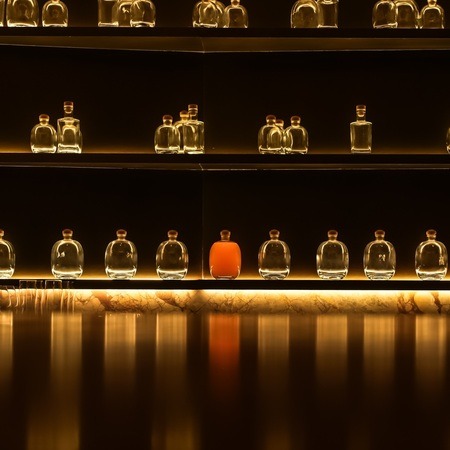+ Image by Mohamed Hassan from Pixabay
Dr. Miloni Sanghvi, psychologist & outreach associate at Mpower – The Centre, Mumbai, helps us understand the measures we can take to manage our mental health during a global pandemic.
The new normal: physical distancing, being confined to our homes, feeling anxious about the future, is bound to take a toll on our mental health. It’s normal to feel whatever it is that you’re feeling. While we are engaging in the necessary measures to stay physically healthy, we must focus the spotlight on our mental health.
Dr. Miloni Sanghvi, psychologist & outreach associate at Mpower – The Centre, Mumbai, helps us understand the measures we can take to manage our mental health and cope with the challenges we’re faced with during these unprecedented times:
1. Managing your home environment
For many of us, being confined to our homes may not be our first preference, but we can create a more conducive environment to fit our daily needs. This may require small shifts in your physical space, effective communication and boundary-setting.
- Create “psychological segues”: It is easy to derail from your work routine as we do not enter or leave a physical work space; it may be helpful to create “psychological segues” that can help you mark these boundaries-like making a cup of coffee before work or going for a walk once you finish work. These markers can protect your work time.
- Working from home + kids/parents: Children at home may constantly seek your attention. In order to keep them occupied as you complete your work, create a schedule for the children that matches the routine of a regular school day. Communicate to them that you are still working from home, as they may be confused about why you are not going to work. Similarly, be transparent with your parents/older members about your work schedule and what is expected of you. Spend time with family outside of your work hours as much as possible.
- Household chores: You may have to attend to household duties in the absence of help. In this case, agree on what adjustments need to be made with your family and manager so that your domiciliary responsibilities are not impeding on your professional work. Avoid tackling domestic chores and working simultaneously as this will divide your attention; multi-tasking becomes counter-productive in this case.
2. Staying away from friends and/or family
Social distancing refers to physical separation of individuals and does not allude to our social connections. It is imperative for us to stay connected with loved ones, especially for individuals living alone, as this impacts our emotional wellbeing.
- Stay connected via FaceTime/HouseParty, etc: Although a love-hate relationship with technology is quite common, it’s time to capitalise on having an online presence-by staying in touch with loved ones during lockdown. Share updates, photos and videos virtually to combat feelings of loneliness during these challenging times. Get creative and organise virtual events such as coffee dates, gym sessions or even quiz nights. These events build a sense of togetherness and keep us going– even when we are physically separated. Consider connecting with your loved ones in the old-fashioned way. Although our dexterity allows us to send multiple messages a minute, it might take a good ol’ phone call to do the trick. Hearing a friend’s voice can help reduce loneliness and produce feelings of nostalgia and comfort.
- Check-in with yourself: Appreciate this slower life as it allows you to focus inwards, without external distractions or temptations. You can work towards your personal goals; build up a practice, a habit or a hobby that you’ve been wanting to. Start a quarantine ritual which you can carry on after lockdown. Reframe your mind-set from “I am stuck at home” to “I have time to focus on myself”.
3. Managing anxiety
It is normal to feel vulnerable and anxious during the outbreak and there are several strategies we can adopt to manage our difficult emotions:
- Acknowledge your feelings: by paying attention to them. Self-compassion expert Dr. Shauna Shapiro shares that “when you care about yourself, you take care of yourself”. By taking time to identify and notice your feelings, you are accepting them rather than bottling them up. As you begin to focus on your feelings, it may be helpful to share how you feel with a loved one to feel further supported and comforted, or to write these down in a journal.
- Stay physically active: This is directly linked to your positive wellbeing. You can access home workout ideas online, stream yoga classes and make a family member your work-out buddy. Physical activity triggers the release of endorphins (the feel-good chemicals) in your brain and provides you with a sense of accomplishment in your day.
- Cut down social media time: Constant online engagement subjects you to excessive information, exaggerated news or false portrayals of events, intensifying feelings of distress. Monitor your social media use and set aside a specific amount of time you use these platforms each day. Mute or exit unnecessary groups (temporarily) if they are making you more anxious. You may want to split essential from non-essential social media platforms, and focus on using the former.
- Use official sources: Obtaining information from reliable sources is essential as circulating misinformation can cause fear and panic within the community.
- Set time limits on news consumption: Avoid excessive exposure to news about COVID-19. You may also consider taking a break from watching/reading the news to avoid feeling overwhelmed.
4. The key to building calmness
As human beings, we love to have control over things and feel anxious at times of uncertainty. Amidst the uncertainty we live with today, it is important to identify the things that you do have control over. Rather than consuming yourself with thoughts about all the “what if” scenarios in your circle of concern, focus your energy on taking small concrete steps every day to prepare yourself better (in your circle of influence). For instance, you can make a list of all the essential groceries and supplies you will require for the upcoming days as well planning your activities for the week ahead.
- Integrate relaxation techniques in your daily life: With the idea of taking control of our own actions, consider integrating relaxation techniques into your day including activities such as deep breathing, stretching, meditation and reading to invite calmness into your life. If digital is your style, try smartphone apps like ‘Headspace’ and ‘Calm’ that have activities such as facilitated meditation.
- Routine: Maintaining a daily routine is key to stability and becomes essential during such times of distress, when we lose our time “anchors” reaching work, college, dropping off children, attending weekly socials or going to the gym. Building a quarantine routine at come can help you develop new anchors. Construct a routine in which you wake up at a regular time, eat healthy meals, stay physically active, continue with daily activities outside of work and establish a healthy sleeping pattern.
5. Sleep right, sleep tight
Sleep is crucial to maintaining positive wellbeing. It helps us build a stronger immune system and improves brain function. By sleeping, we give our brains a break from activities such as complex thinking, learning, memorising and decision-making, allowing it to be geared up for the next day. Good sleep also allows individuals to be attentive and focused the next day. Sleep also affects your mental health; the lack of sleep can make a person irritable, lower their energy levels and cause low mood and anxious thinking. Use these pointers to improve your sleep:
- Don’t oversleep: even though you may be tempted to. Sleeping more than 7-8 hours per night can make waking up much more difficult. Oversleeping can also make you feel groggy, irritable and unfocused the next day.
- Wake up around the same time: Let your wake-up time be your first anchor of the day. Our bodies follow a circadian rhythm, a continuous 24-hour internal clock also known as the sleep-wake cycle. Our circadian rhythm cycles tend to coincide with night-time and daytime; as the day gets darker, the brain signals the hypothalamus to help the body wind down. A hormone, melatonin, is released which helps the body prepare for sleep. Having regular sleep patterns reinforce our circadian rhythms.
- Use an alarm clock: Regularise your wake-up time with the help of an alarm clock if required. Waking at the same time every day will actually help you to sleep better at night, whilst assisting the maintenance of routine.
- Switch off screens: Don’t use screens before sleeping. It’s a good idea to put away all electronic gadgets 30 minutes before you hit the sack as research has shown that the blue light emitted from screens interfere with melatonin production.
Reach out for professional help if you feel that you are struggling with your mental health and need additional support. Sharing your struggles with a trained professional can be consoling, as you can discuss your experiences in a non-judgmental and safe space.
*Mpower has partnered up with the Govt. of Maharashtra & BMC to launch a 24×7 helpline to address mental health concerns during Covid-19 pandemic. Available to the citizens of Maharashtra, ‘BMC-Mpower 1on1’ the toll-free helpline 1800-120-820050 has experienced mental health counsellors you can reach out to.
Text: Dr. Miloni Sanghvi, Psychologist & Outreach Associate, Mpower – The Centre, Mumbai









